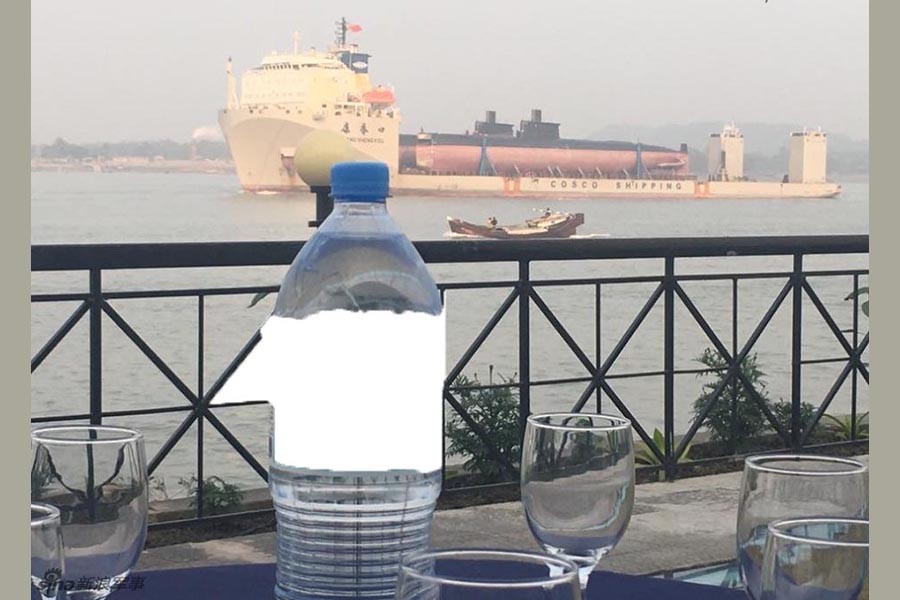Production of and trade in spurious drinking water is random in the capital. Illegally bottled water is passed as being approved by the relevant regulatory authorities. A metropolis already afflicted by adulterated commercial foods, the contaminated drinking water emerges as a fresh scourge. It is feared to snowball into a great threat to public health. In the last one and a half decades, law enforcers' raids on errant water-bottling factories have been a regular feature of Dhaka's urban life. But little changes could be identified. Despite hefty fines and imprisonment awarded by different mobile courts following raids, the traders appear to remain unfazed. The fake water-filtering companies are found churning out small and large containers filled with 'mineral water' as before.
The recent raid on a water-bottling factory on the city outskirts, coupled with several arrests, thus appears as a routine exercise. Perhaps the same goes with the demolition drive by a mobile court at an illegal factory in the south-eastern part of the capital, as shown in a photograph published in this paper on February 23. Such anti-adulteration drives have yet to create any serious impact vis-à-vis the syndicates and isolated traders running their businesses. As the city residents in general are ignorant of the hazards of drinking unsafe water, the illegal water factories pick them as their gullible clients. The bottling process at most of these factories does not have even the minimum hygienic condition in place. The irony is out of the over 100 water bottling factories, just a handful of them are found fully compliant with the water processing rules.
The most dreadful aspect of Dhaka's 'mineral water' business is the so-called pure water processed at illegal factories that carries coliform bacteria, present in human faeces. Research also detected various microbes and toxic chemicals in the spurious mineral water. Studies conducted by a Western country's health department have held the very water distribution system in Dhaka city responsible for the water's contamination with disease-causing organisms or pathogens. The consequences of drinking unfiltered and not specially treated water sold by dubious companies do not require any in-depth study. The universal proverb 'water is life' sounds like a cruel mockery for the Dhaka dwellers when it refers to the city's supply-line drinking water. The relevant authorities, too, have admitted on occasions their incapacity to supply fully pure water to the city residents. The river water taken from the nearby sources is beyond treatment.
The non-stop fall in the city's ground water level, resulting in a pervasive water scarcity, appears as a double whammy. The unscrupulous quarters always bide time for such a situation. Illegal water-bottling traders are doing just that. Given this seemingly unmanageable situation, impure and contaminated water has veritably become a fait accompli for the Dhaka dwellers. Remaining hostage to this situation on the authorities' part appears to be a disservice to the city residents.


